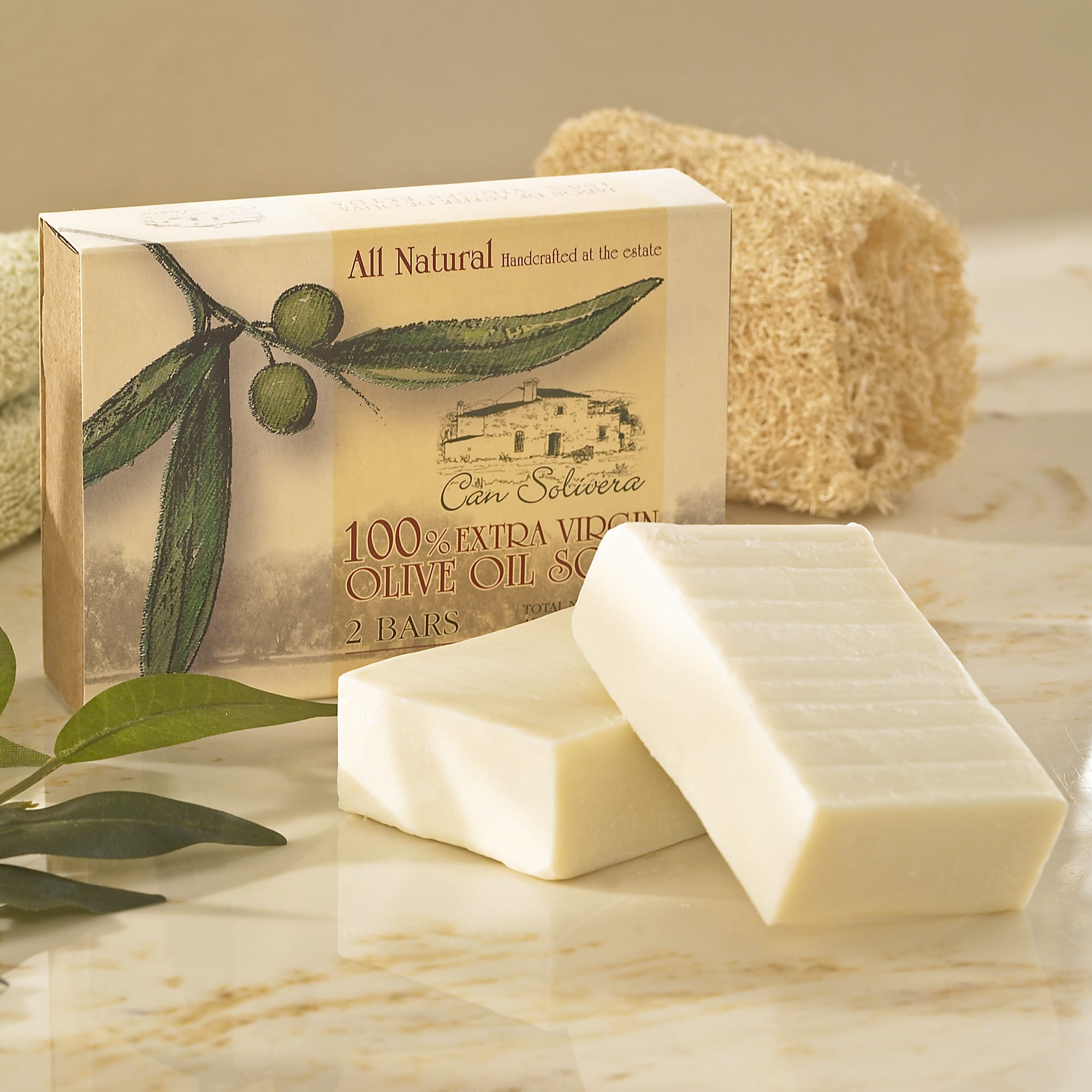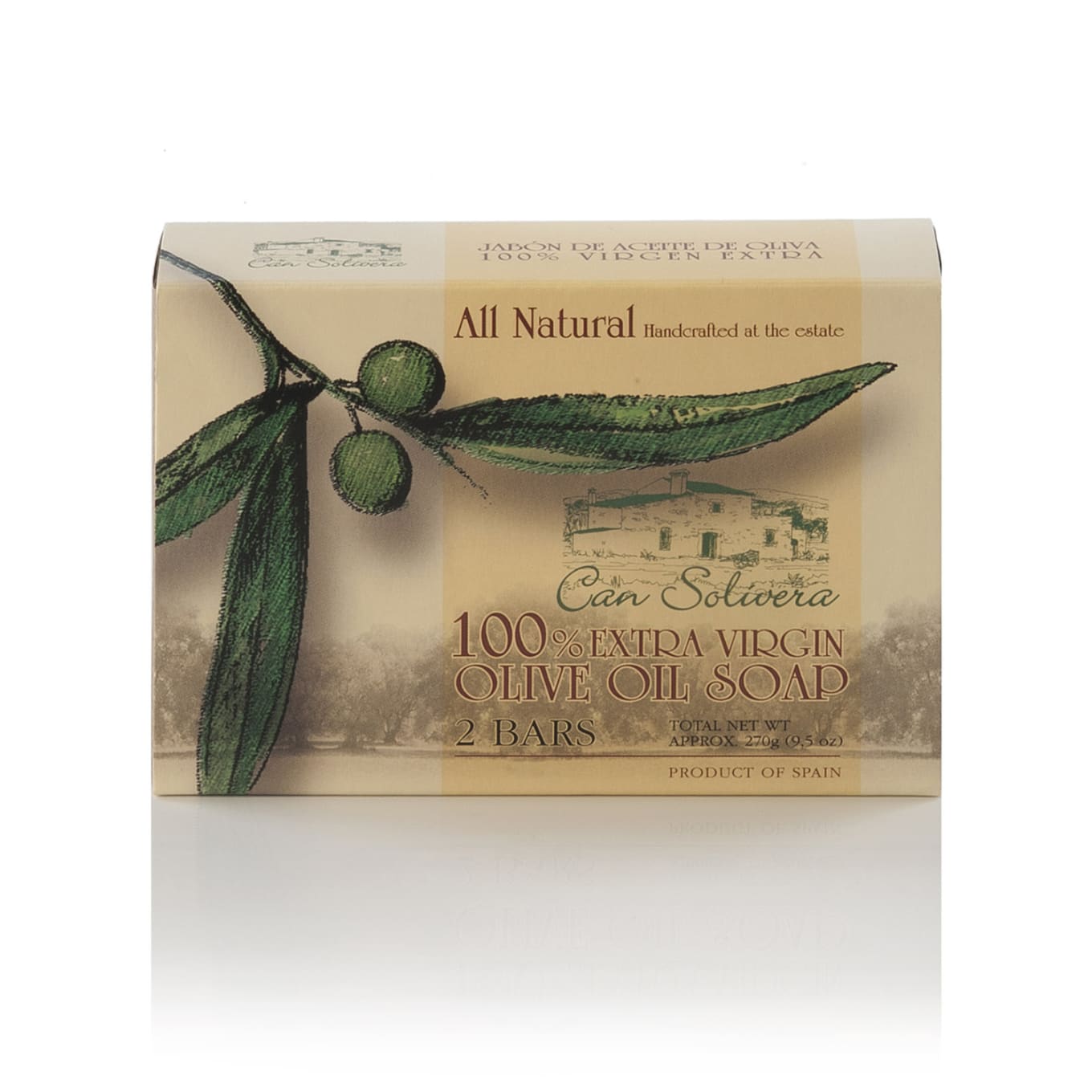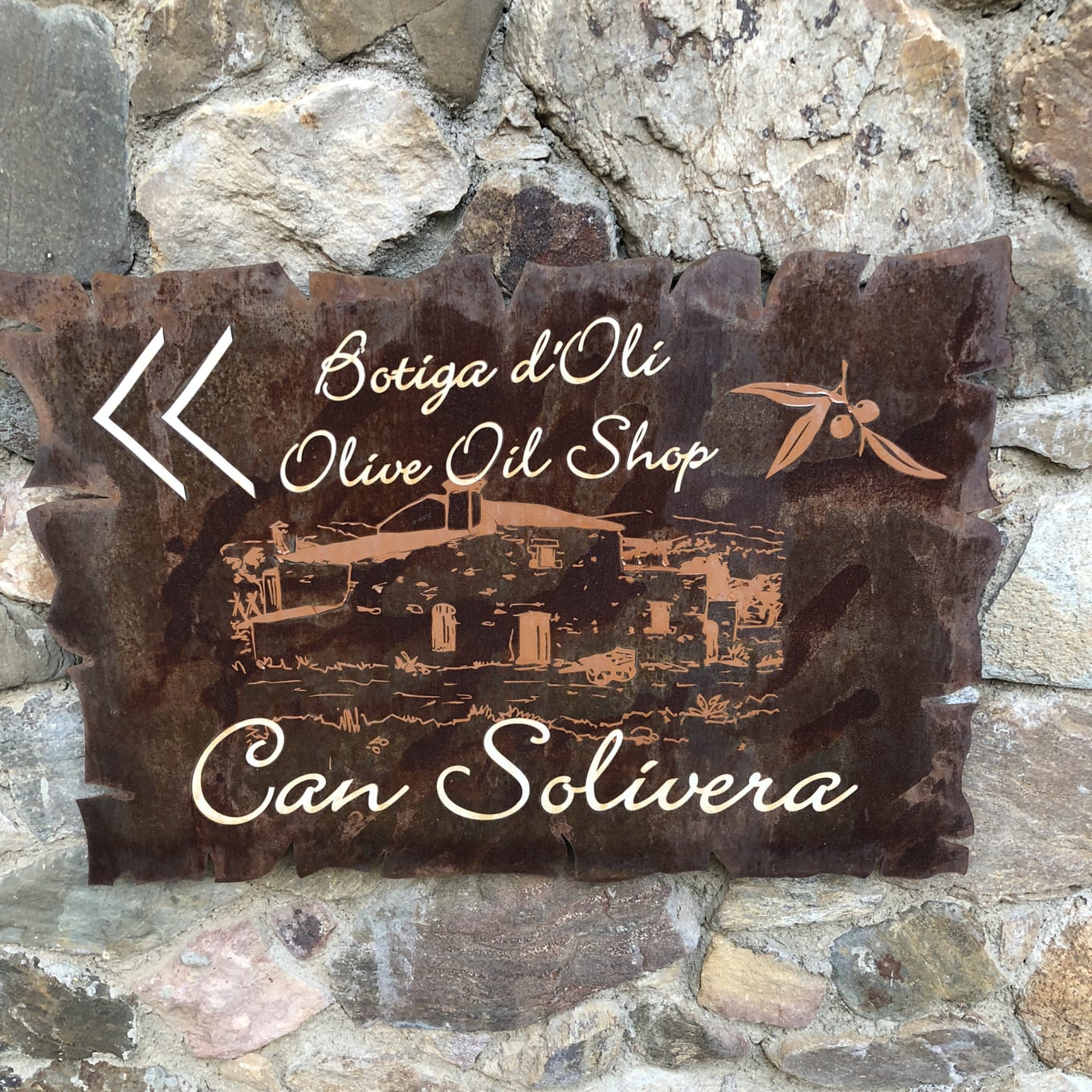Three Kings Sale - Up to 40% Off! Shop Sale

2 Bars of Handmade 100% Extra Virgin Olive Oil Soap
2 Bars of Handmade 100% Extra Virgin Olive Oil Soap
2 Bars - Cold Pressed Olive Oil Natural Lavender-Rosemary Scent
Item: SO-16 |
All Natural
We are sorry, we no longer carry this product, however...
We probably have something similar, and maybe even better! Please use the search field above to find other great products from Spain.






- Healing balm for sensitive skin
- Handmade with 100% extra-virgin olive oil
- Pure, all natural ingredients
- Hand-cut, small production
- Wonderful natural aroma
- Size - 2 bars, total net wt. 9.5 oz/270 gr
This amazing handmade soap is a labor of love from an artisan couple whose goal is perfection. Following a medieval recipe they discovered, the couple made no compromises – beginning with their choice of premium cold pressed extra virgin Arbequina olive oil from their estate.
The soap's delicate scent comes from essential oils steam-distilled from rosemary leaves, lavender petals and pine needles. To the fresh soap they add lemon juice.
Look closely at the packaging of any other olive oil soap in the market. It probably contains refined, not extra virgin olive oil, and a small amount at that. Can Solivera only uses 100% extra virgin olive oil, cold pressed and never heated, so it retains all of its healing vitamins and beneficial oils.
Each bar of soap is individually cut and wrapped by hand. It is 100% pure - no artificial ingredients are added.
These artisan producers use the cold process of soap making, which better preserves vitamins and anti-oxidants. Naturally non-allergenic, Can Solivera olive oil soap has unique anti-inflammatory qualities which make it especially soothing and healing to sensitive skin.
Extra virgin makes a world of difference because only extra virgin olive oil contains squalene, a natural sterol, which scientists credit with important anti-inflammatory properties. Olive trees create more squalene than any other tree or plant in the world. Olive oil made for industrial use contains no squalene, because it has been removed during distillation.
--------------
BACKGROUND
As early as 2800 BC soap was known in the Fertile Crescent. At first people only used soap medicinally and for hair tinting, but gradually its cleansing properties were appreciated. It was made from animal tallow and ashes.
Closer to the Mediterranean, animal tallow was soon replaced by olive oil, because olive trees were plentiful and the oil was believed to have superb healing properties. In the Egypt of the Pharaohs, people used soap as part of a skin care regimen, while ancient Greeks bathed in pure olive oil!
The Roman scholar Pliny wrote about the production of olive oil soap, which the Roman citizens first used for cleaning textiles and later for bathing -- scented with rose petals, laurel and herbs.
Soap went out of favor with the fall of the Roman Empire, resulting in centuries of fragrant Europeans!
It was not until the turn of the Millennium that the Celts introduced bath soap to Britain. However, by the late Middle Ages olive oil soap blossomed again in Spain and in France, where it became famous as "Pure Castile" or "Marseille" Soap. Natural olive oil soap remained the "gold standard" of soaps for several centuries.
In the 20th century soap production was absorbed into the detergent industry. The industrial producers replaced olive oil with much cheaper oils such as cottonseed and linseed, often mixed with animal tallow and fish oil. They introduced chemicals to speed the soap making process.
Today a typical bar of commercial soap contains some 20 different chemical ingredients, including artificial dyes and synthetic (often overly pungent) perfumes.
On occasion, you may notice olive oil referenced or displayed as an ingredient on a commercial soap package. The amount of olive oil in such bars is seldom listed, for it is a tiny fraction added for marketing purposes.
A special note from Don Harris:
"My family uses this unique product made by our friend Daida from a truly medieval recipe. An amazing product."
